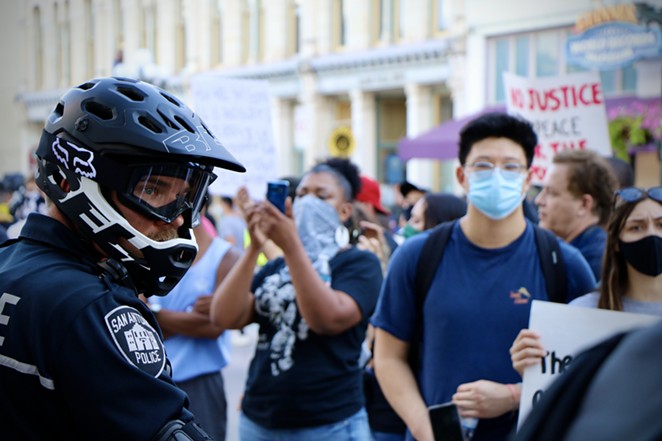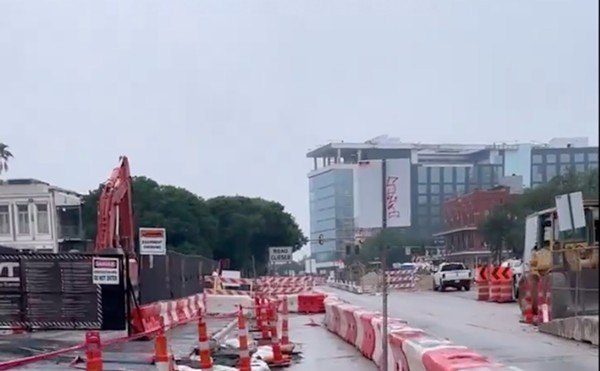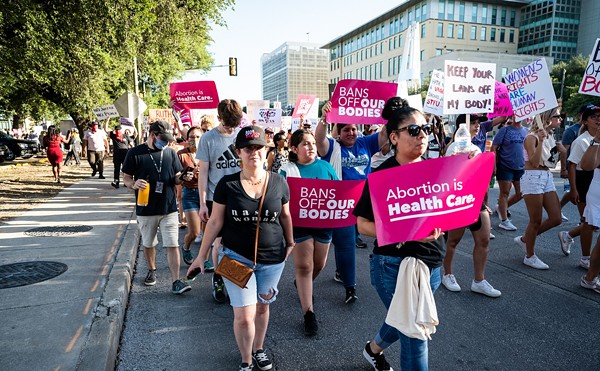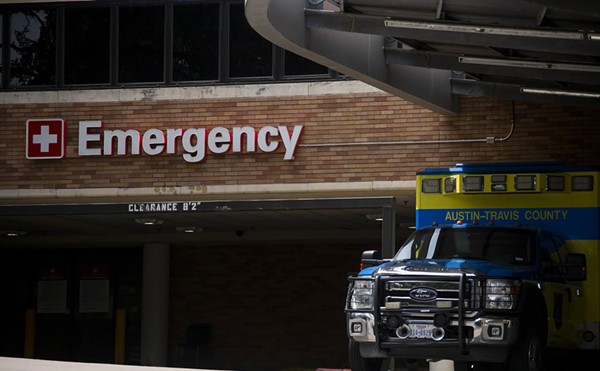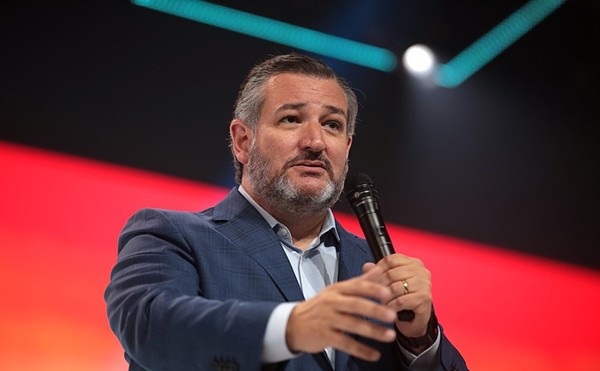The Texas governor, lieutenant governor and speaker of the House want to freeze property tax revenues in cities that cut police budgets after a summer of demonstrations against racial injustice and police violence.
Big proposals full of holes — like this one — are a signal that politics has trumped policy, that leaders are trying to either blunt an attack from their political opponents, divert attention from their own failures, or both.
As politics, it might work.
If it’s really a policy idea, however, it’s got a couple of gaping holes in it. The Texas Supreme Court ruled in 2005 that the state can’t legally cap local property taxes for schools. The reasoning is that the state itself is constitutionally prohibited from levying property taxes, and that capping local taxes was, in effect, setting a property tax rate and was therefore unconstitutional. The attorney general who defended the state in that one, by the way, was Greg Abbott.
And there was a provocative hot take on Twitter from former state Rep. Matt Rinaldi, an Irving Republican and attorney, poking another easy hole in the proposal: “Does the Gov want to provide an incentive for voters to support defunding police by tying it to a property tax freeze? This is a weird approach.”
Taken at face value, what the governor and his sidekicks proposed would do just what Rinaldi suggested. They said any cuts to local police budgets should be answered with freezes on any increases in local property tax revenues. Someone bent on corralling local spending could get allies at City Hall to cut the police budget and freeze taxes forever; it’s easier than arguing over taxes and property valuations every year.
They were prompted to act last week, when Austin’s City Council gave the state's top three officials a hole big enough to drive a political distraction through. The council voted to take $150 million out of the police budget, a figure that includes about $20 million in actual cuts and the rest in redirected spending on other programs. About 150 vacant officer positions were eliminated, as were three planned classes of new police cadets.
Abbott branded that a success of politics over public safety, saying state police will “stand in the gap” in Austin until the Texas Legislature gets to town in January. And he promised a response.
That’s what he and the two legislative leaders unveiled in Fort Worth this week. It got them a lot of headlines, too. They got a nice poke at the leaders of the state’s most liberal big city during the week of the Democratic National Convention. And they changed the subject, momentarily, from the three issues that have made 2020 such a perilous year for Republicans in elected office: the pandemic, the recession and the demonstrations sparked when George Floyd was killed in the custody of Minneapolis police in May.
They’ve joined the evolving law-and-order argument of the 2020 general election, taking sides with police after a summer of demonstrations against police violence against people of color. For the moment, they weren’t talking about their uneven responses to the coronavirus and the economic havoc in its wake.
The COVID-19 response has even turned Republicans against the Republicans in charge. Several GOP lawmakers who think the governor's executive orders overreach his authority are suing to stop him. And Abbott's government is losing credibility elsewhere.
Commissioners in Collin County, a Republican stronghold, voted 4-0 this week to add some new language — on a bright red background — to the county's coronavirus dashboard: “Warning: Collin County is providing COVID-19 numbers and data as a convenience to our residents. However, because we have been made aware of inaccuracies in the Department of State Health Services’ reporting, we must advise residents that Collin County has no confidence in the data currently being provided to us.”
The three leaders also got in a new shot in the state’s ongoing efforts to sap the power of local governments. Mayors and county officials follow the beats of local drums, to the vigorous consternation of state officials, who appear to hear other voices in their heads. Cities and counties have tussled with state lawmakers over gender-focused bathroom regulations and property tax increases, to name a couple.
Tuesday’s police drill wasn’t the first round — just the most recent one.
Even if “Drop the budget knife or we’ll freeze your taxes” doesn’t go anywhere, the lines of debate over the summer’s demonstrations are marked, and marked in time for the election.
Voters will probably be thinking about COVID-19 and their livelihoods when they go to the polls, starting in less than two months. Some will be thinking about George Floyd and others killed by police.
Now, maybe some of them will be thinking about law and order, too.
Stay on top of San Antonio news and views. Sign up for our Weekly Headlines Newsletter.
